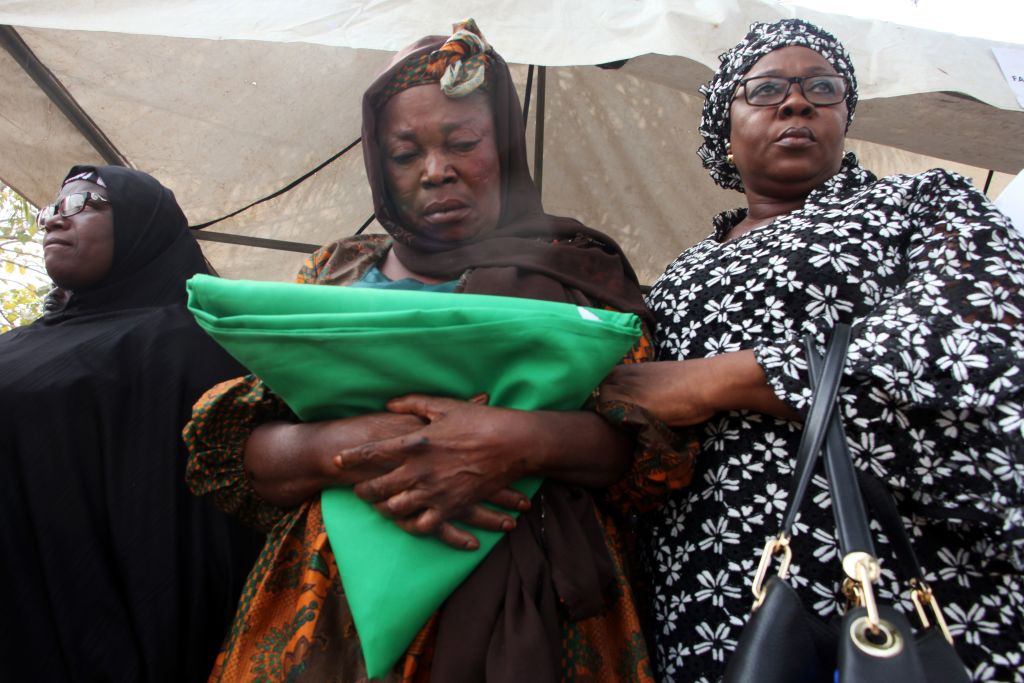Across the continent several insurgencies and conflicts have dragged on for years, some for decades. But there is another battle happening at home, where families of Soldiers who were killed are struggling and need support.
Violent conflicts throughout Africa have led to a significant increase in the number of military widows and orphans. In northeast Nigeria, Boko Haram terrorists have killed more than 36,000 people and displaced 2.2 million others since they began their insurgency in 2009.
Fisayo Ajala and Lindy Heinecken, social anthropology researchers with Stellenbosch University in South Africa, spoke with military widows in Nigeria and reported their experiences in a December 2024 study.
“These women face the socio-cultural realities of widowhood in Africa, experience a loss of economic and social capital and confront a series of identity-related losses — including their status as military spouses, the dissolution of their military family life, the loss of military housing, and the severing of social connections,” they wrote in a May 23, 2025, article for South African newspaper the Cape Argus. “These diverse losses, coupled with the circumstances surrounding their husband’s death, make their experiences uniquely challenging.”
For the families of Soldiers killed in combat, the Armed Forces of Nigeria (AFN) offers a package of benefits including burial expenses, a pension for 60 months, insurance and education for orphaned children.
The researchers also studied the experiences of military widows from other African militaries, such as the Kenya Defence Forces (KDF) and the Armed Forces of the Democratic Republic of the Congo (FARDC). Many reported difficulty accessing entitlements and benefits as they dealt with multiple bureaucratic systems.
In an ongoing dispute with FARDC, widows have demanded payments that the military has withheld over the legality of the fallen Soldiers’ marriages. In Kenya, widows of KDF Soldiers risk losing their pensions upon remarriage or cohabitation.
In reporting how AFN widows sometimes encounter obstacles when trying to access their late husbands’ benefits and entitlements, Ajala said that improving the process and imbuing it with a culture of caring could improve personnel recruiting and retention.
“Neglecting the families of fallen Soldiers has far-reaching implications,” he wrote in a July 20 article for The Conversation Africa website. “It results in severe financial hardship and emotional trauma. In turn, it could potentially lead to a loss of trust and morale among serving Soldiers.”
Ajala offered several ways to address issues that military widows have encountered:
- Decentralize administration: In many countries, widows and orphans are required to appear regularly at the military headquarters. This often means costly, difficult travel over hundreds or thousands of kilometers. The timely delivery of benefits and services would be vastly improved by increasing the number of caseworkers and deploying them to more locations.
- Create support units: Widows need proactively delivered and easily accessible information about their benefits and personal guidance on how to claim them. “Improvements can be made by establishing dedicated desks or offices to offer comprehensive guidelines, support and feedback on the claims process,” Ajala wrote in The Conversation. “This would address the specific needs of the widows on an individual basis.”
- Improve professionalism: Militaries should formalize guidelines and principles to ensure impartial treatment of all families and bring dignity to their dealings with a large bureaucracy. They also should establish procedures for addressing complaints and resolving outstanding issues.
Most Soldiers say they experience a strong sense of brotherhood and belonging in serving their countries. Ajala’s research shows how that same kind of closeness and connection can and should extend beyond active military duty.
Ajala and Heinecken urged African militaries to raise their attention to the plight of the widows and orphans of their fallen Soldiers. Militaries should consider that caring for the needs of Soldiers and their families from start to finish helps build a culture of trust, professionalism and selfless service that can be a force multiplier in combating insecurity on the continent.
“These widows are not only reminders of the inherent risks of death in military service, but also symbolize the sacrifices made by Soldiers who have laid down their lives for their countries,” they wrote. “Caring for military widows conveys a message of honor, gratitude and national solidarity, emphasizing the importance of the sacrifices made by service members and their families.”

